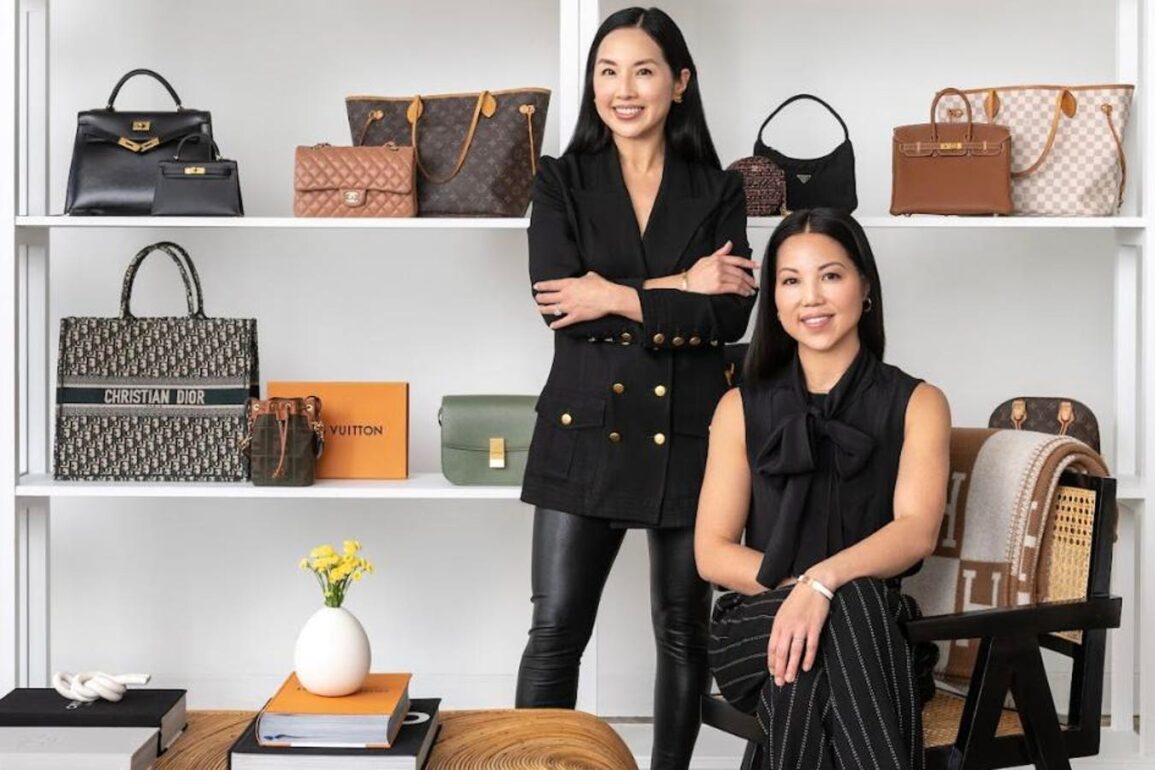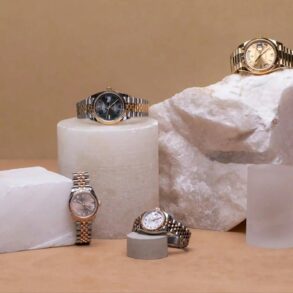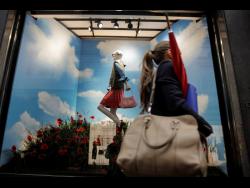
LePrix, which notched $100 million in gross merchandise value since launching in 2020 – think luxury preowned handbags from brands such as Louis Vuitton, Chanel, Gucci, Hermès and Dior –is partnering with WhatNot, a $3.7 billion social marketplace to become its official source for pre-loved luxury goods, similar to LePrix’s partnership with Tik Tok Shop.
LePrix, which is the premier wholesaler for sourcing authenticated luxury handbags, began as a B2C business, but quickly pivoted when it realized that its retail and ecommerce clients were trying to buy and source products from each other. Its tag line, “Reinventing How Businesses Source Pre-Owned Luxury,” says it all.
“What this means is that WhatNot sellers can source from LePrix on our platform and take advantage of all the amazing products that we offer,” said Emily Erkel, CMO of LePrix, who started the company with her sister, Elise Whang, who serves as CEO. The live streaming sector of the resale industry is expected to reach $130 billion by 2026.
“We initially started the platform to bring together the best vintage and consignment stores online. What happened was, after a few years of helping these awesome businesses go online – a lot of them were mom and pop small business owners – we realized that they would try to buy from each other.”
Erkel claims LePrix has the largest selection of preowned luxury handbags at wholesale prices, with 180,000 new items added to the platform each month. The retailers and small business owners buy on LePrix’s platform, from each other or reach out to Erkel and Whang and say, “Can you help us find an Hermès Birkin bag or Louis Vuitton Neverfull.”
“We realized that sourcing preowned luxury is really hard,” Erkel said. “B2B is a very analog space and very fragmented. If you don’t know the source, you’re taking a risk on eBay, hoping something is a good deal and authentic. You’re spending a lot of money traveling, translating and dealing with customs, duty and shipping. These businesses have limited budgets. They source and hope they find what their customers are looking for. Meanwhile, their margins are getting eaten away.
“When we launched LePrix, these business owners became very dear friends of ours and we wanted to help them in a different way,” Erkel continued. “We launched our B2B business in 2020, about three and a half years ago, and we haven’t looked back since. We closed our consumer-facing site to focus on the opportunity to help businesses source efficiently and at scale.”
Erkel said there’s plenty of inventory to go around, it’s just a question of the quality of the inventory. “From the B2B perspective, a lot of our suppliers are international,” she said. “They’re in the U.S., they’re in Europe, they’re in Japan. We’re very particular and very selective about who are suppliers are. We go through a very rigorous process of onboarding, and authentication.”
Many products come from Tokyo, where consumers have very limited closet space. When a customer wants a new bag, she’ll take a previously-owned model and sell it to a store on the corner.
Nica Yusay, founder of FashioNica.
Courtesy of FashioNica
“A lot of these stores in Japan are suppliers to the B2B industry,” Erkel said. “They’ll buy directly from that consumer and that bag will go into that supplier’s inventory, where they place it on LePrix’s platform. Let’s say a retailer in the U.S. purchases that bag and it gets sold again. It’s all part of the circular economy. At the end of the day, we really see ourselves as an engine of the circular economy because we’re empowering suppliers to move inventory across borders.”
Sisters Erkel and Whang bring complementary skills to LePrix. Erkel has decades of marketing and strategy experience with some of the largest brands in the world, from luxury houses such as Chanel, LVMH and Hermès to All-American label Gap
GPS
The sisters always shared a love of thrifting, and visited consignment and vintage stores on the weekends when they were in High School. When they went to college and embarked on separate career paths, they often wondered why “there isn’t a place where we can shop all our favorite vintage,” Erkel said. “The idea for LePrix came from a phone call where we asked that question.”
Erkel is not only an expert at building a brand from the ground up, but also strategically planning for its long-term growth. Calling out the rising popularity of thrifting and resold items early, she capitalized on Gen Z’s sustainability-focused mindset and spending habits. Since launch, LePrix has notched customer growth at 56% year-over-year.
“We’re very different than, say, Vestiaire, which is more like a peer to peer marketplace,” said Erkel. “They bring on consumer products. They’re going to face the same issues that our small business owners are facing, which is, basically, you’re waiting for whatever the consumer walks in the door with or whatever the consumer wants to sell.”
Erkel and Whang have a birds’ eye view of consumer sales trends and the popularity of some of the world’s most sought-after bags. It seems consumers are fickle. Within the top pre-owned brands, Louis Vuitton, Chanel, Gucci, Hermès, Dior and Goyard, there have been spikes and dips for the most beloved designs.
“We’ve seen a dip in Louis Vuitton Neverfulls, which is actually pretty surprising, it’s always been a classic staple. At the same time, we’ve seen a rise of the Goyard Saint Louis bag, which is basically, a similar style,” Erkel said. “We’ve seen an increase in certain Chanel Classic Flaps and a decrease in Gucci, especially the Marmont bag as well as the Dior Book Tote.”
Sequin Fendi Baguette handbags seen at the most recent London Fashion Week. (Photo by Jeremy … [+]
Getty Images
At the same time, the Dior Saddle bag is having a comeback, and the Gucci Dionysus and the Jackie bag with the horse bit remain popular. “The Fendi baguette has been hot since it had its 25th anniversary a few years ago,” Erkel said. “We’ve seen an increase in demand for the embellished and printed handbgs. The one Carrie Bradshaw [Sarah Jessica Parker’s character in ‘Sex and the City,’] wore has been really popular.”
Erkel said she’s also seen vintage, such as Y2K styles coming back into popularity. “It’s great because not only does it extend the life span of that product, you see the younger generations are adopting that style and they’re able to buy pieces of luxury that might actually fall within their budget versus buying brand new in the store.”
Erkel also keeps close tabs on selling trends in the resale market. Live selling is the hot ticket and has been ever since the height of the Covid-19 pandemic when the world was largely hunkered down.
“It has just exploded in popularity,” Erkel said. “There was a pent up demand and companies like WhatNot did a great job to meet the demand and launch these technologies to help the sellers sell. The sellers needed inventory, though.
“It continues to be explosive sales for a lot of our stores. It’s really exciting to see not only the evolution of our business, but of the retail landscape. HSN and QVC
QVCA
For example, Nica Yusay, founder of FashioNica, responds to viewer’s comments, like ‘Hey, would you mind showing that bag again?’ Yusay says, ‘I got you, I’ll go grab that Chanel bag’ and she’ll comment on it in detail.
Yusay, who started her career doing corporate brand marketing, loved thrifting as much as Erkel and Whang. When she started indulging in buying preloved luxury items, her fiance suggested she put her hobby to the test.
“He said, ‘You’re buying so much, you actually need to make money from what you’re buying,’” Yusay said. “He was right. I thought, why not turn this into a business since it’s something I’m extremely passionate about.”
Yusay left her corporate job and launched FasioNica, hitting almost $100,000 in sales in the first year of business. Last year, she did $5 million in sales. “We rely heavily on live streaming, which is where WhatNot comes into play,” Yusay said. “We have coined a term, The Bag Drop, and everyone knows that it’s on Wednesdays at 7 pm. They sell out in a few minutes.
“We were introduced to WhatNot, that’s where we gameify the whole bag drop and put things on dollar options and they sell out like crazy,” said Yusay, who does a little over $100,000 in sales every week and projects $8 million in sales by the end of 2024.
“I’m really excited to have this partnership with LePrix,” she said. “I want to continue to have activations that disrupt the resale space. I’m even thinking of doing an international bag drop and using WhatNot to expand our audience and highlight the accessibility of luxury products.”
This post was originally published on this site be sure to check out more of their content.





